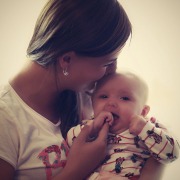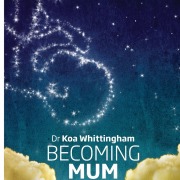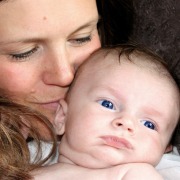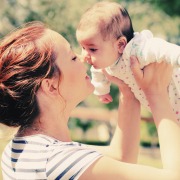The non-existent problem of deciphering a newborn’s cues
It is now well-accepted that cue-based care, responding to a baby’s cues for feeds, physical contact, play or sleep, is the best form of care for babies, particularly for newborns. However, this has turned into lists of baby’s cues, instruction guides on how to decipher their bizarre and yet supposedly universal signals. Many of these instruction guides seem to suggest that children come into the world speaking their own peculiar language of grunts, ear-pulling, eye-fluttering and specific cries for specific needs. It is ridiculous and it makes life unnecessarily stressful for new parents, many of whom feel like they need to learn a new language to parent their child. In fact, instruction guides on deciphering a baby’s cues are just as useless as the “How to Know if He Likes You” articles so common in young women’s magazines. Sure, the fact that he talks to you frequently could mean he likes you in that way. It could mean alot of things… There’s only one way to know if he likes you and that’s to put time and energy into getting to know him and to let your feelings and his become clear with time. In the same way, sure, ear-pulling could mean your baby is tired. It could mean alot of things… There’s only one way to become adept at reading and responding to your child’s unique cues and that’s to put time and energy into getting to know your baby. You need to experiment and see what works. Your baby’s unique cues, patterns, feelings and personality will be revealed with time. You might say that’s all very well in the long-term, but what’s a new parent to do? How is a new parent, still groggy and overwhelmed from the birth, meant to decipher baby’s cues?Don’t new parents needs the lists and instruction guides as a starting point? The truth is there isn’t much deciphering to be done in the early months. In fact, to give cue-based care to a newborn there’s really only one question you need to answer: could baby be hungry? If you think your baby could be hungry then offer a feed. If you don’t think your baby could be hungry then mix up your baby’s sensory experience in a way that would feel good for you at the time: hold baby, walk with baby, rock baby on a rocking chair with some music, dance with baby, go for a walk with baby, spend time in your backyard, or have an outing together. Notice what happens. Did baby suckle hungrily, taking big gulping swallows of milk? Did baby seem to enjoy the backyard, walk, dancing, or outing, did your baby liven up and relish the sights and sounds? Did baby drop off to sleep on the feed or out on the walk? With time, noticing how your baby responds, will give you a clear sense of your baby’s unique cues and patterns. Apply it to your life: Are you the parent of a new baby? Put those instruction manuals aside and get to know your unique baby. In the early months there’s really only one question: could baby be hungry?













11 months on and I have never worked out my daughters cues.
Hi Emma,
The whole idea of ‘working out’ cues as if they were another language is so misleading. Flexible experimentation is what is needed.